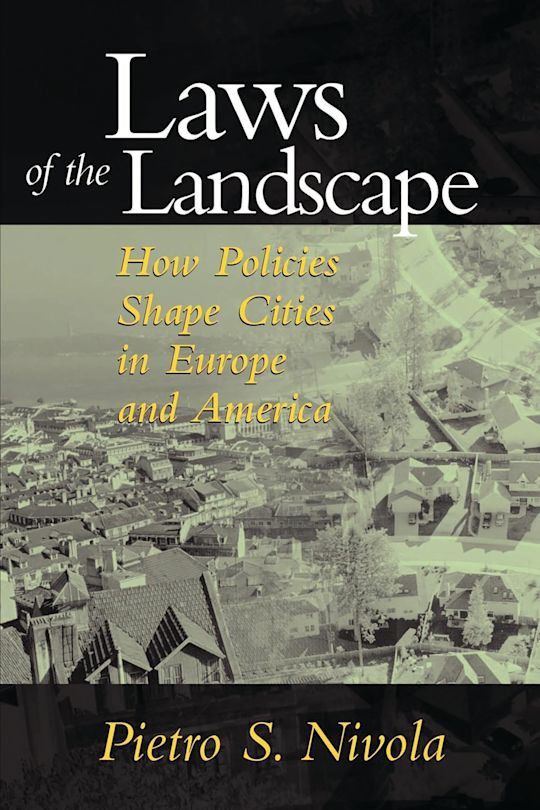- Home
- ACADEMIC
- Politics & International Relations
- European Politics
- Laws of the Landscape
This product is usually dispatched within 3 days
- Delivery and returns info
-
Free US delivery on orders $35 or over
You must sign in to add this item to your wishlist. Please sign in or create an account
Description
For decades, concerns have been raised about the consequences of relentless suburban expansion in the United States. But so far, government programs to control urban sprawl have had little effect in slowing it down, much less stopping it. In this book, Pietro S. Nivola raises important questions about the continued suburbanization of America: Is suburban growth just the result of market forces, or have government policies helped induce greater sprawl? How much of the government intervention has been undesirable, and what has been beneficial? And, if suburban growth is to be controlled, what changes in public policies would be not only effective, but practical?
Nivola addresses these questions by comparing sprawling U.S. metropolitan areas to compact development patterns in Europe. He contrasts the effects of traditional urban programs, as well as ""accidental urban policies"" that have a profound if commonly unrecognized impact on cities, including national tax systems, energy conservation efforts, agricultural supports, and protection from international commerce.
Nivola also takes a hard look at the traditional solutions of U.S. urban policy agenda involving core-area reconstruction projects, mass transit investments, ""smart"" growth controls, and metropolitan organizational rearrangements, and details the reasons why they often don't work. He concludes by recommending reforms for key U.S. policies--from taxes to transportation to federal regulations--based on the successes and failures of the European experience.
Brookings Metropolitan Series
Product details
| Published | Apr 01 1999 |
|---|---|
| Format | Paperback |
| Edition | 1st |
| Extent | 142 |
| ISBN | 9780815760818 |
| Imprint | Brookings Institution Press |
| Dimensions | Not specified |
| Series | James A. Johnson Metro Series |
| Publisher | Bloomsbury Publishing |



































